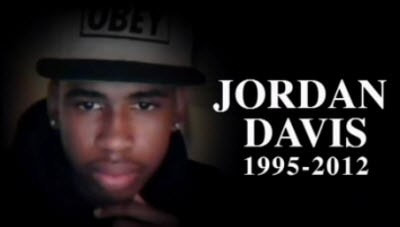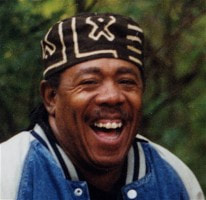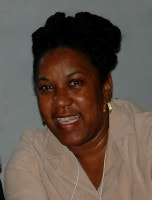|
[Roots of Justice Trainers and Accountability Council (board) members share thoughts and analysis about the Michael Dunn verdict and Stand Your Ground laws.]
I am shaken by the outcome of this case. As I think of the jurors, I am reminded of the need to be vigilant: I need to notice when I am being tempted into a similar default position. I must ensure that I constantly listen to alternative sources of history, news and analysis of our society. I need to check the reactions I have in tense situations for my unexamined assumptions and stereotypes. Most of all, I have a responsibility to ask questions of myself and of others when a system fails as dismally as the justice system failed in the trial of Michael Dunn.
This irrational white fear played itself out in our neighborhood in Seattle in December when our local police department swooped in to forcibly remove a coalition of African American parents and educators called Africatown from a building owned by the school district while they were in the middle of negotiating a lease. This police action was justified by a “report” that there were snipers and explosives in the building, a report that was very obviously false to anyone with any knowledge of the people involved in Africatown, but was somehow seen as credible by most of the local media outlets, which basically regurgitated the police department version of events. Tina: I’ve also felt speechless in the face of the enormity of all that the Michael Dunn verdict makes evident, but don’t want to remain so. As a South Asian in North America, I don’t want to be silent and collude in reducing this to an issue that implicates only White and African-descent/Black people/communities. Those of us who are neither White nor Black are often expected to join the White perspective in order to belong, to be viewed as reasonable and trustworthy, and we are fed a steady diet of television shows and news articles that reinforce images of dangerous Black men. I’ve never had cause to fear Black men, young or old. When I arrived here as a young South Asian teen, the greatest threats to me were posed by White teenagers, both boys and girls. They were terrifying, yelling racial slurs, spitting and threatening to beat me up as I ran from them. I took their threats seriously because people who looked like me had been thrown in front of subways or beaten to death. As these teens threatened me, no one intervened – not the White bus driver who steered the bus where the taunts began, and not the other mostly White adult passengers. To this day, some forty years later, I don’t cross a dark or deserted street when there is a Black man walking there, but I do when I see a White man or a group of White teenagers. I actually breathe a sigh of relief when I see a group of Black teenagers, feeling less alone in an otherwise brutish world of racism. So as a rational and thoughtful human being of mature age, I do not agree that this is a reasonable way for Michael Dunn to have behaved, and I hope other racialized people will not condone his behaviour either.
Tina: In the court proceedings and the media coverage, we are made to believe that “most people” would have acted as Michael Dunn did. We are asked to share the assumption that these are people who are credible, reasonable and worth listening to because they can be counted on to offer a rational and objective position. It’s clear in the way this case has unfolded that White people get immediate admittance into this group, regardless of class, occupation, country of origin, etc. There is perhaps a minor qualification for White women who are not always seen as rational, but nothing that would usher them out of this particular tent. I wonder if the shadowy sub-text of this case is that it is also on their behalf – the safety of White women – that this question of threat is being posed (just as it has been throughout the history of racism in this society). Was Michael Dunn acting to protect not just himself but the companion he was waiting for? Was he protecting her not only from the potential physical threat but also the discomfort and harsh presence of Black men being loud in a way that is frightening to White women? And wouldn’t every White man want to ensure that White women can walk the streets without such an affront? Rick: There is the rather glaring contrast between the trials of George Zimmerman and Michael Dunn (white men [see here for discussion about Zimmerman’s compliracial identity]) on the one hand and the trial of Marissa Alexander (an African American woman) on the other hand. Even though a Florida appeals court has now called for a new trial for Marissa Alexander (no doubt in response to the Free Marissa national organizing campaign), the same system that exonerated Zimmerman and Dunn on “stand your ground” was quick to convict her of aggravated assault and give her the mandatory minimum of 20 years. Conrad: And manifestations of this fear happen everywhere, but not always to the same extremes. I had an incident on the job where one of my colleagues and I had some tense words between us. He was one of those white guys who everyone seemed to be afraid of and tried to placate. We were at the same level of management. I had only been on the job a few weeks. We had a departmental misunderstanding of some kind. His response was to barge into my office and attempt to chew on me, figuratively. I wasn’t having it. I stood up and in no uncertain terms let him know that he will not barge into my office and he does not have permission to talk to me using that particular tone. Simple and direct. Next thing I know I’m getting a call from HR. He is asking for a meeting. Trying to get me fired I suspect. Long story short, he said he felt threatened and intimidated. I reminded him that I never verbally threatened him or lunged at him in any way. “Well not exactly Conrad. Not in so many words.” Then where did those feelings of intimidation actually come from? I asked rhetorically. Why exactly are we here? If you are just afraid of black men you should see a therapist. Your sense of fear and intimidation in the presence of black men is not my problem. Bottom line. This law has now made his fear, real or imagined, my problem. Pam: I’m not convinced Michael Dunn even felt fear. The facts of the case seem to suggest to me that he felt rage rooted in entitlement, but he can claim fear and use it to justify his behavior and juries seem to accept that. Like you, Conrad, I’ve been thinking a lot about “less extreme” expressions of the logic that underlies these verdicts and Stand Your Ground laws. I think its important for all of us to think about the ways in which we are implicated, rather than distancing ourselves from the injustice that they represent, as if it has nothing to do with us. As I’ve observed interactions across race lines, I’ve been noticing how white woman are not socialized in ways that make it acceptable to assert our power in direct ways. In fact, I think its quite the opposite – white women often exert their power through vulnerability and expressions of weakness or need. So in groups where white women are in the majority, folks who communicate directly especially about conflict are often seen as dominating or even as threatening. The “Angry Black Woman” stereotype is still alive and well. When it comes to feelings in interpersonal interactions, its not uncommon these days to hear things like “feelings are not right or wrong, they just are.” Does this mean that its not appropriate to question what relationship the feeling has to what actually occurred? Does this mean that if a person “feels attacked” in an interaction, that is somehow the responsibility of the other person no matter what actually occurred in the interaction? If so, this does seem to be a logic parallel to the Stand Your Ground laws and these jury verdicts. The Stand Your Ground laws use the language of “reasonable” perception of threat. If our understanding of “reasonable” is based on what “most people” would feel, in a white supremacist society, our understanding of that is going to be biased to what “white folks raised with racial stereotypes” are likely to feel. I think we need to have a way to understand or define threat that is not so subjective, not so feelings-based, and that attempts to discern more concrete evidence of threat. This is a tall order, and to do this, we are certainly going to need to pay better attention to the ways that our subjective experiences of threat are rooted in pervasive and often unconscious racial stereotypes. Rick: One of the biggest challenges I face as a white person working with other white folks and in multi-racial coalitions is to find effective ways to counter the irrational white fear/imagined threat/white victimhood narrative and not allow myself to feel paralyzed by what Tina describes as “the enormity of all that this makes evident.” Another challenge we have been discussing and organizing around in European Dissent (a white antiracist group here in Seattle) is to identify and articulate why it is urgent for us as white people to address and work at dismantling the Prison Industrial Complex. What is in it for us? Tina: As I ran from the group of teenagers who threatened me all those years ago, I remember wishing in my impotent rage and fear that I had a gun to defend myself. I am deeply thankful that I never did, and never will have a gun. But it begs the question: Would I have garnered the same sympathy that the jurors gave to Michael Dunn if I had shot one of these White teenagers? It’s highly unlikely. Those White passengers who were silent on the bus would likely have become outraged, would have insisted that those teenagers were “just being kids,” and that they did not deserve to die for their bad behaviour. That’s because our society teaches us to have empathy for the White person in the scenario, to see the White person in her or his full humanity, to give her or him the benefit of the doubt, to think the best of her or his motives, to identify with him or her as we would our own children – it’s the default position that is the product of a society where White people are always presented as the norm for being human. Where is that same concern, identification with and profound care for the child who is Black and just as vulnerable, just as prone to play loud music, stay up late, drive over the speed limit and do all the things we do as youth because we are pushing the boundaries that adults impose in this phase of our development? How can these common teenage infractions be deemed punishable by death?
0 Comments
Leave a Reply. |
AuthorRoots of Justice trainers and friends share reflections on historical and current events Archives
April 2024
Categories
All
|
© Roots of Justice, Inc. All rights reserved.







 RSS Feed
RSS Feed